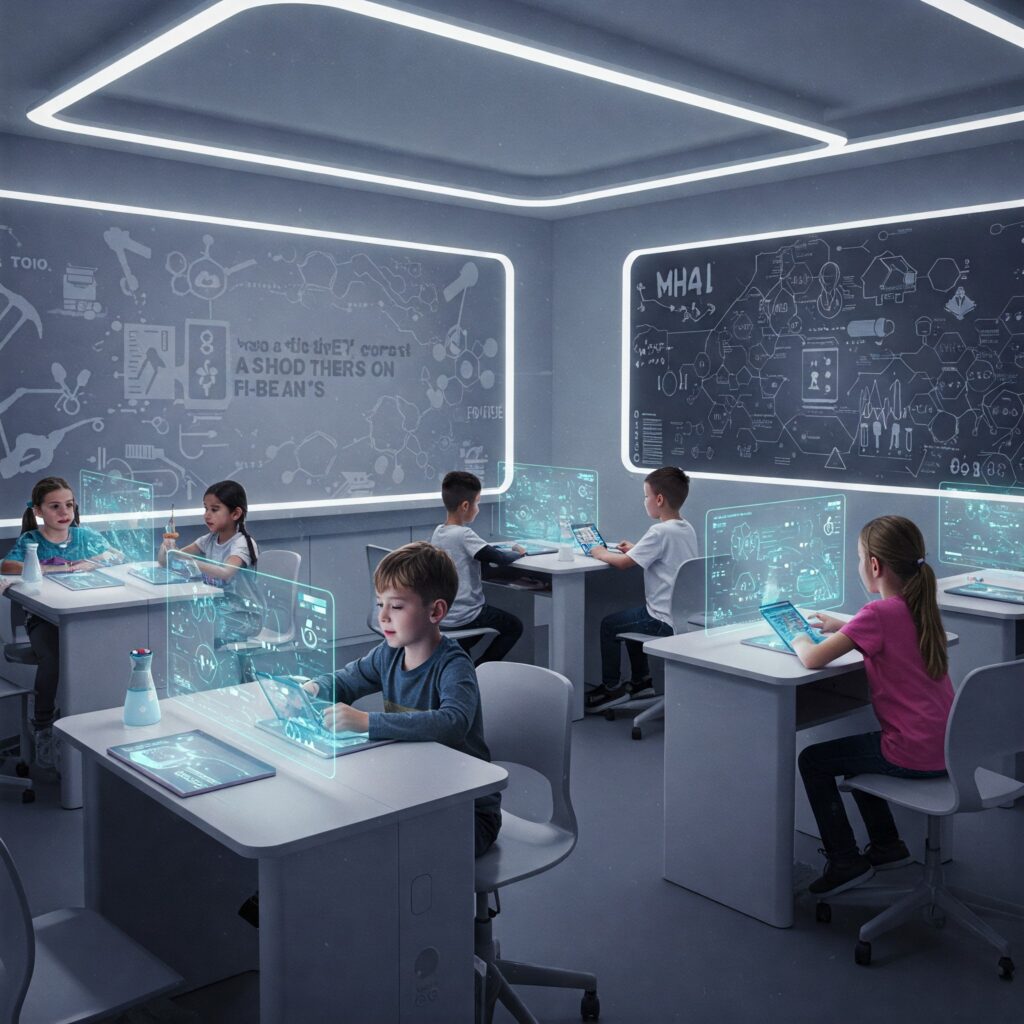The landscape of childhood is constantly evolving, shaped by technological advancements that permeate nearly every aspect of life. Among these, Artificial Intelligence (AI) stands out as a particularly potent force, poised to revolutionize how children learn, develop, and interact with the world around them. While concerns and ethical considerations are valid and require careful attention, the potential of AI to personalize education, foster crucial skills, and provide unprecedented learning opportunities for children is immense.
One of the most significant impacts of AI will be the personalization of learning experiences. Gone are the days of a one-size-fits-all approach to education. AI-powered platforms can analyze a child’s learning style, pace, strengths, and weaknesses in real-time. This allows for the dynamic tailoring of educational content, activities, and feedback to meet individual needs. Imagine a math curriculum that adapts to a child’s understanding of each concept, providing extra support where needed and accelerating when mastery is demonstrated. This level of individualized attention can foster deeper engagement, improve learning outcomes, and cultivate a more positive relationship with education.
Furthermore, AI can play a crucial role in developing essential 21st-century skills. Beyond traditional academic subjects, today’s children need to cultivate skills like critical thinking, problem-solving, creativity, and collaboration. AI-powered tools can offer interactive simulations, virtual reality experiences, and gamified learning environments that encourage exploration, experimentation, and the application of knowledge in novel ways. For instance, a child learning about climate change could participate in a virtual simulation that allows them to experiment with different environmental policies and observe their consequences. This hands-on, immersive approach can foster deeper understanding and the development of critical thinking skills.
AI also has the potential to enhance early childhood development. Intelligent toys and interactive learning apps can provide personalized feedback on language acquisition, cognitive skills, and social-emotional development. For example, an AI-powered storytelling app could adapt its narrative based on a child’s responses, encouraging language development and imaginative play. Similarly, AI could assist in identifying developmental delays early on, allowing for timely intervention and support.
Moreover, AI can bridge educational gaps and promote inclusivity. Children with learning disabilities or those from disadvantaged backgrounds can benefit significantly from AI-powered assistive technologies and personalized learning resources. AI can provide text-to-speech and speech-to-text functionalities, offer customized learning pathways for students with special needs, and provide access to quality educational content regardless of geographical location or socioeconomic status.
However, the integration of AI into children’s learning and development is not without its challenges. Ethical considerations surrounding data privacy, algorithmic bias, and the potential for over-reliance on technology are paramount. It is crucial to develop robust safeguards to protect children’s data and ensure that AI algorithms are fair and unbiased. Furthermore, educators and parents must actively guide children in their interactions with AI, fostering digital literacy, critical evaluation skills, and a healthy balance between screen time and real-world experiences.
Looking ahead, the impact of AI on children’s learning and development will only intensify. We can anticipate the emergence of more sophisticated AI tutors, personalized learning companions, and intelligent educational tools that seamlessly integrate into various aspects of a child’s life. The key lies in harnessing the power of AI responsibly and thoughtfully, ensuring that it serves to empower children, foster their potential, and prepare them for the complexities of the future while safeguarding their well-being and fundamental rights. The future of learning for children is inextricably linked to the evolution of AI, and by embracing its potential while addressing its challenges, we can pave the way for a generation of lifelong learners and innovative thinkers.
In conclusion, the integration of AI into children’s learning and development presents a transformative frontier. Its capacity to personalize education, cultivate essential skills, enhance early childhood development, and promote inclusivity holds immense promise for empowering the next generation. However, navigating the ethical considerations surrounding data privacy, bias, and over-reliance on technology is crucial. By embracing AI responsibly, fostering digital literacy, and maintaining a balanced approach, we can harness its power to create enriching and equitable learning experiences that prepare children to thrive in an increasingly complex and technologically driven world. The future of childhood learning is intertwined with the evolution of AI, and a thoughtful, human-centered approach will be paramount in shaping its positive impact.
